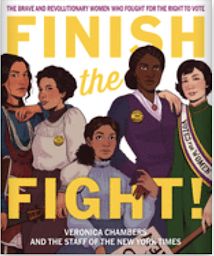The struggles of remote teaching and learning are real. Figuring out how to hold onto best practices with 29 students on a Zoom call is tricky at best. But as always, educators are figuring it out! I am amazed at all that teachers are doing to make this the best possible experience for students of all ages.
This week, Seth's Godin's blog post, Self-Directed, Project-Based Learning got me thinking again.
Since spring, I've been reflecting on my experiences with remote teaching. As I work with teachers now, I continue to think about what worked and what didn't when we moved to remote teaching last year. I am also thinking about the possibilities and surprise joys that came with remote teaching and learning. One thing I discovered was that Writing Workshop was an area that allowed me to offer choice and good teaching while making sure to meet required standards. I see how much is possible with remote teaching when it comes to writing.
I wrote a bit about it here after learning a bit from Julie Johnson on the blog this spring. I created a board for students that focused on writing choices and also met the standards that needed to be covered. Each choice led to a slideshow specific to the genre that helped kids do a bit of their own study while still having the support of our live writing workshop sessions.

I was mostly focused on providing choice and independence at that point. But once I opened up possibilities for kids, so many more good things happened.
Writing Workshop in a remote learning setting reminded me of the thing I know but sometimes forget when I am caught up in the day-to-day work of teaching--the more I let go and the more choices I give students, the more authentic and rich their writing experiences are and the more they learn and grow. The more choice and ownership I gave to students, the more they were able to do as writers and the more they were able to surprise me with their brilliance.
When given the choice, lots of time, and response from both home and school, students came up with so many great ideas:
- One student created her own cooking show, using some of her favorite TV shows as mentors for her writing.
- One student created a news show with her older sister and together they crafted stories, created a set and recorded those.
- One student created a new version of a board game with directions on how to play.
- One student interviewed family members about a memory, so that all perspectives could be part of the final piece.
- A student who has major talent in art had time to create several pages of a graphic novel.
- A student created the first chapter of Frozen fan fiction, planning to go on to write more over the summer.
One big lesson for me was when one of my students shared her process in creating a podcast. She had enjoyed the podcast series The Unexplainable Disappearance of Mars Patel and wanted to create her own fiction/fantasy podcast. We met several times in small groups and one day she said, laughing, "I spent all day yesterday looking for just the right sound effects. I found so many apps and so many sound effects. I wanted to find the perfect ones!" (You can listen to the podcast, "Sabrina and the Unexpected Fortune" below.)
In that moment I realized that the things we know that are important to any writing workshop (time, choice and response), were already so much a part of this pandemic life. Even though we provide these things in the classroom writing workshop, much has been taken away over the years because of time constraints, district mandates, state testing, etc.). In school, time for writing is limited, but because students had extra down time due to the pandemic, writing became playful and fun and so authentic. They could spend as much time as they needed or wanted to on parts of the process. They were able to go above and beyond in areas of writing that they wanted to. It seemed so authentic. I know that when I write, I sometimes get caught up for hours on one word or on one sentence. Or I work to try to find the perfect image to go along with a message. This is the fun of writing on some days.
When I met with small groups, students weren't talking about their writing pieces as something they were doing for school or because of school. They started talking about their plans for summer and how they might build onto the work they had done so far to write more. They were choosing to use their summer to continue work on some writing projects as they knew they'd have lots of time. So many of them were living their outside-of-school lives as writers.- Kids were exposed to writing they may never have thought of trying.
- We could talk about craft across genres--word choice, conclusions, organization are important no matter the genre or format. This allowed students to see the ways skills could transfer.
- Mentor texts became more important. I provided several but then students found some of their own as needed during the creation process.
- Writers were not only learning about the kinds of writing they were doing themselves, but as participants in the writing community, they were learning about the many kinds of writing that others were engaged in.
- Minilessons could be built using student work and could easily be planned to transfer to any kind of writing.

























